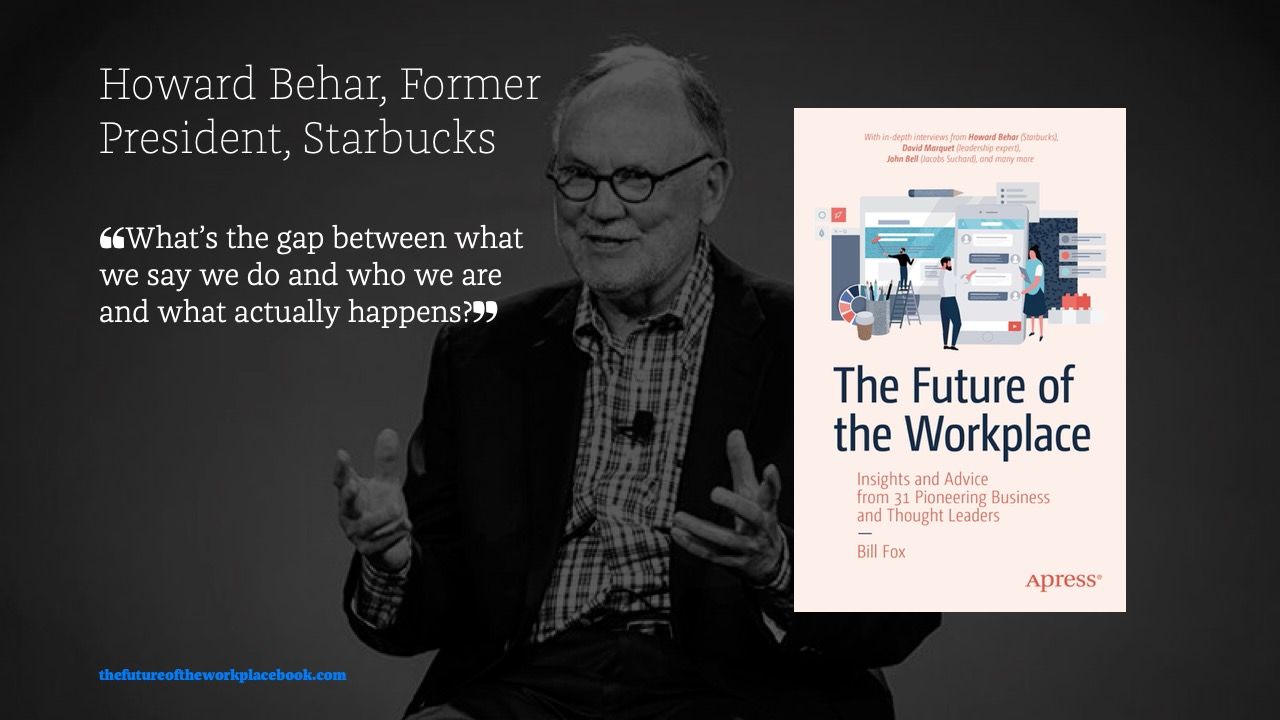The Person Who Sweeps the Floor Chooses the Broom
What people really long for at work is to be treated like a human being — not an employee.

Howard Behar: President (Retired), Starbucks.
At Forward Thinking Workplaces, we are discovering the people, insights, and strategies that lead to Forward Thinking minds, leaders, and workplaces of the future — today. Forward Thinking conversations will define the great workplaces of the 21st century. Check out our upcoming Events page or visit billfox.co to learn more.
How can we create workplaces where every voice matters, everyone thrives and finds meaning, and change and innovation happen naturally?
Howard Behar: I have this little saying, “The person who sweeps the floor chooses the broom.” What I mean by that is the person who has a responsibility in certain areas is given authority, responsibility, and accountability. That means you’ve got to give them room to make mistakes and to grow primarily as people first, and then as employees.
The keyword here is trust. What makes a family healthy? What makes it so the kids can strike out on their own? What makes it so our partners can stretch out on their own? It’s the trust we build with each other—that’s what has to happen in organizations too. When you have trust, it’s amazing what can happen.
When there’s trust, it’s amazing how people can begin to use their own creativity because they lose that fear of being judged. They lose the fear of making mistakes.
They go out there and do things that serve each other and serve their customers. It’s not complicated. It’s half building trust and caring about each other while encouraging each other. As a leader, it’s giving them responsibility and accountability to let them “choose their broom.”
You know it’s not really employees and customers. That’s a word we all use to describe who we work and do business with. It’s one human being serving another human being. That’s what it is. At the end of the day, that’s what we were put on the earth to do. It doesn’t make any difference in your job description or your title; we’re all servers of human beings.
What does it take to get an employee’s full attention and best performance?
Howard: I think, first of all, it’s about always being open and honest. Lots of communication. Setting expectations so that they’re clear and getting agreement on those expectations. It’s primarily what I talked about in the previous question, if people feel like they’re trusted and that they have responsibility and accountability, they’ll give you their attention. It’s just automatic.
Employees want to hear you because they know you want to hear them. It’s the same thing that happens in a family. What allows your kids to give you their attention? It’s when they feel trusted and not judged. When that happens, they open up to communication that gets closed down when they’re not. When you’re constantly after them when you’re always setting rules and regulations, then what happens? They close down.
It’s that whole dynamic of letting them be, setting expectations, gaining agreement on those expectations, and letting them go for it.
That’s the same thing that goes on in a company or organization. It’s that whole dynamic of letting them be, setting expectations, gaining agreement on those expectations, and letting them go for it. It’s amazing how they listen and give you their attention when that’s done.
Note: This is a preview of the full interview. The complete interview was selected by Apress for publication and continues in The Future of the Workplace.
